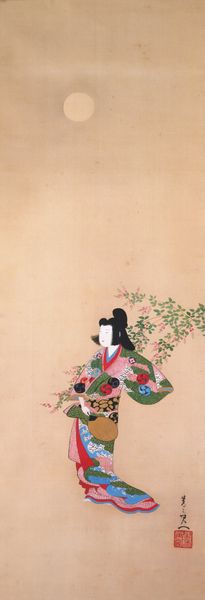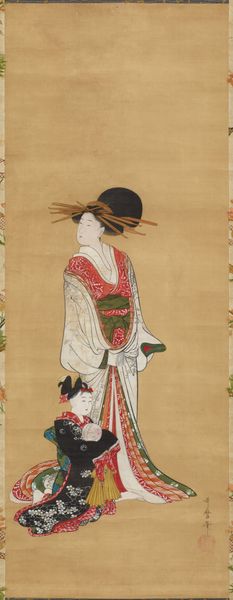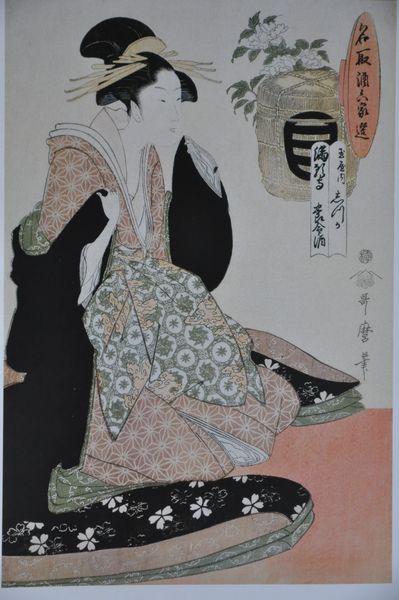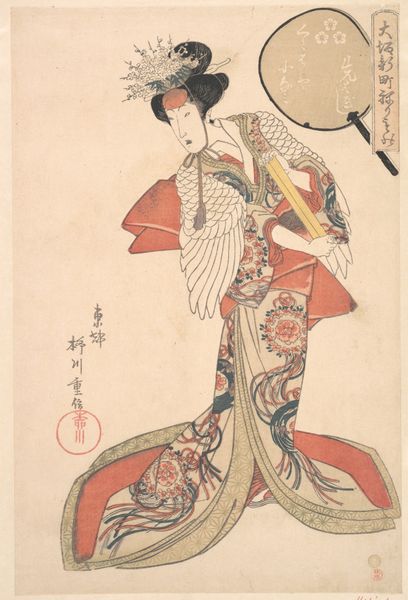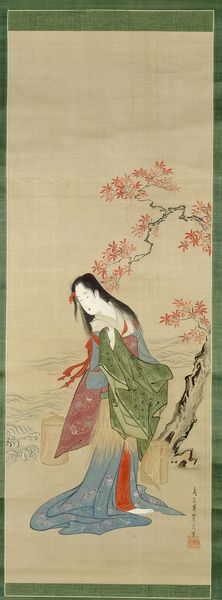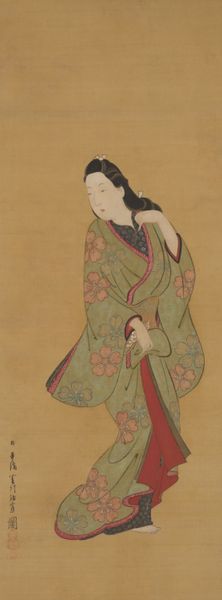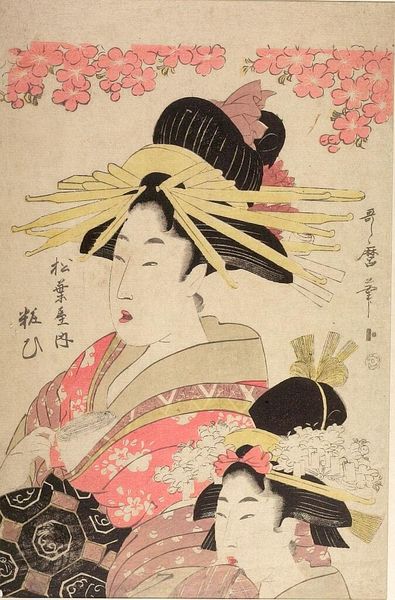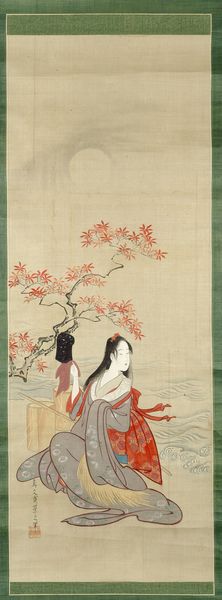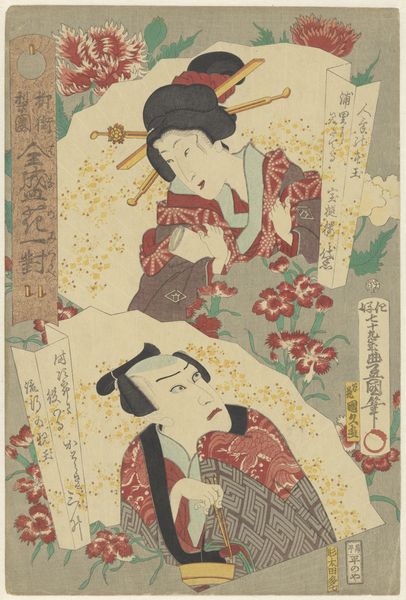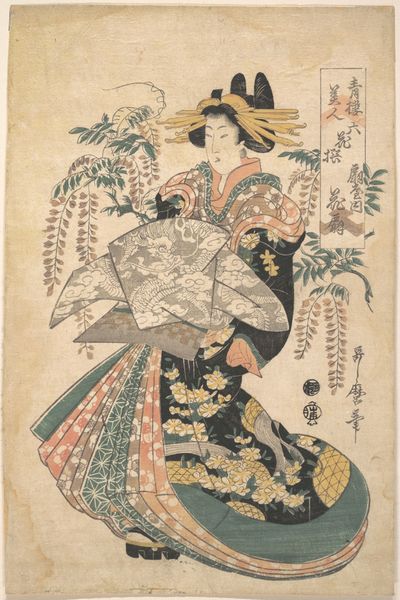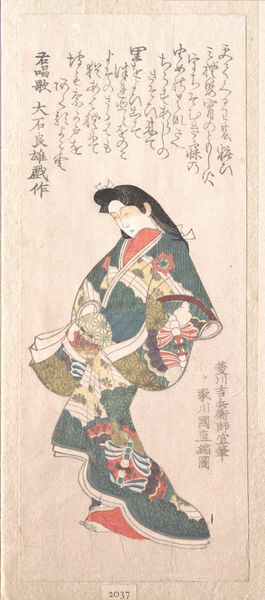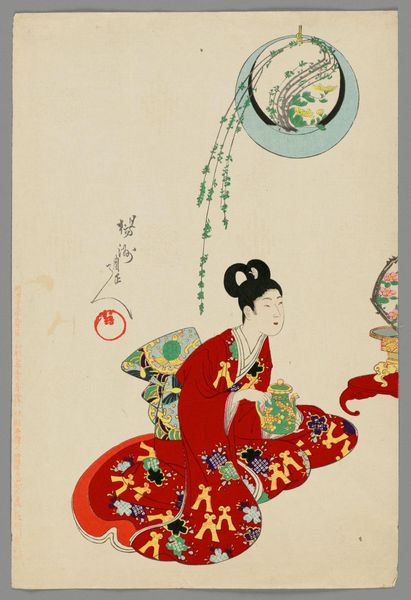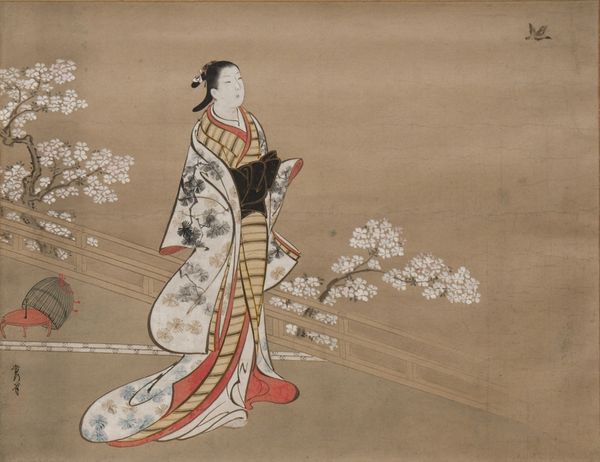
watercolor, hanging-scroll, ink
#
portrait
#
water colours
#
asian-art
#
ukiyo-e
#
figuration
#
watercolor
#
hanging-scroll
#
ink
#
orientalism
#
calligraphy
Dimensions: 32 3/4 × 11 11/16 in. (83.19 × 29.69 cm) (image)63 × 15 15/16 in. (160.02 × 40.48 cm) (without rollers)
Copyright: Public Domain
Curator: This is "Wisteria Maiden," a hanging scroll rendered in ink and watercolor, created around the 18th century by Tsukioka Settei. Editor: Ah, the delicacy! It's like stepping into a whispered dream. The wisteria is just gorgeous—such ethereal purples and greens trailing down. The whole piece feels both elegant and melancholic. Curator: That melancholic quality you sense is partly intentional. Ukiyo-e, the artistic movement this piece aligns with, often explores transient beauty. This, combined with Settei’s emphasis on capturing ephemeral moments, produces that particular mood. Editor: Yes! The woman’s bowed head really adds to that. What’s she thinking, looking at those blossoms? Is it longing? Regret? It’s all so beautifully ambiguous. Curator: Ukiyo-e also was known for depictions of the demimonde, that is the pleasure districts and the arts related to it, from the famous courtesans, to the plays performed at theaters, among others. It democratized imagery through printmaking, allowing the general public broader access to art than ever before. The imagery allowed commoners a glance into high society, if that is what the maiden is reflecting upon. Editor: Looking at the detail in her robe, all those intricate patterns… it almost feels like she is the flower itself. She is becoming the fragile and yet determined wisteria. And that little hint of red peeking out at the sleeves. Exquisite. Curator: Consider the context as well. Hanging scrolls were integral to interior display within Japanese homes and institutions. The works selected and prominently placed shaped both the atmosphere of the room and the patron's cultural identity. Works of this type could set a stage, politically, economically, intellectually for those who spent time in a given room. Editor: A very loaded silence. Well, Settei created a powerful image; it is an image that lingers. I want to return to that contemplative hush every time I see it. Curator: I am glad to offer further context to enhance your observations and perspective of this compelling figure.
Comments
minneapolisinstituteofart about 2 years ago
⋮
The Wisteria Maiden was a favorite subject of Ōtsue, folk paintings made in the town of Ōtsu. The paintings were believed to have auspicious properties; those hoping for a good match in marriage might buy a picture of the Maiden. The character later appeared in kabuki theater and was so popular that an entire play was eventually written around her. This classical depiction shows the Maiden as a beautiful young woman, or bijin, dancing with a wisteria branch over her shoulder. Settei, an Osaka artist, was famous for his delicately painted bijin and erotic imagery. The calligraphic inscription, by the Osaka kyōka poet Senkatei Karitsu (1748–1789), indicates that Settei painted the beauty in the spirit of Matabei’s brush, a reference to the legendary founder of Ōtsue and ukiyo-e.
Join the conversation
Join millions of artists and users on Artera today and experience the ultimate creative platform.
